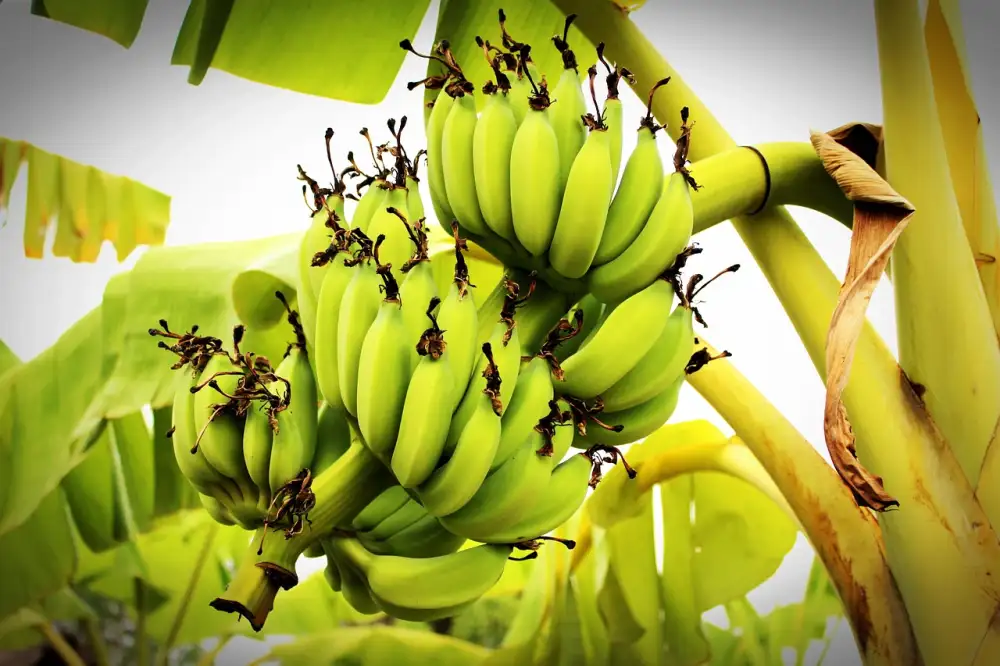Accelerate Banana Ripening: Mastering the Art of Speeding up the Ripening Process

Introduction
Introduction:
Bananas are a versatile and delicious fruit that can be enjoyed in a variety of ways. However, sometimes we find ourselves in need of ripe bananas for baking, smoothies, or simply to enjoy as a snack. Waiting for bananas to ripen naturally can be a time-consuming process, but fear not! In this article, we will explore various techniques and methods to accelerate the banana ripening process. By mastering the art of speeding up banana ripening, you'll never have to wait again for perfectly ripe bananas. So let's dive in and discover the secrets to achieving culinary excellence with perfectly ripened bananas!
Understanding the ripening process of bananas
Understanding the ripening process of bananas is essential in order to accelerate it effectively. Bananas undergo a natural ripening process caused by the release of ethylene gas, which triggers enzymatic reactions that break down starches into sugars. This process starts when bananas are harvested and continues until they reach their peak ripeness. By understanding this process, we can manipulate the conditions to speed up the ripening process and enjoy perfectly ripe bananas whenever we desire.
Choosing the right bananas for ripening
When it comes to accelerating the ripening process of bananas, choosing the right ones is crucial. Look for bananas that are still slightly green and firm to the touch. Avoid bananas that are already too ripe or have brown spots, as they may become overripe before fully ripening. It's best to select bananas that are at a stage where they can still be easily handled without being too soft. By starting with the right bananas, you can ensure a successful and efficient ripening process.
Storing bananas properly
Storing bananas properly is crucial to ensure a successful ripening process. First, avoid placing bananas in direct sunlight as this can cause them to ripen unevenly and develop brown spots. Instead, store them in a cool, dry place away from other fruits. It's best to hang them on a banana hanger or lay them gently on a countertop. Avoid storing bananas in the refrigerator unless they are already ripe, as cold temperatures can slow down the ripening process. By storing your bananas properly, you can extend their shelf life and have perfectly ripe fruit when you're ready to enjoy it.
Using ethylene to ripen bananas
Using ethylene to ripen bananas is a tried and true method that has been used for centuries. Ethylene is a natural gas that is produced by fruits as they ripen. By exposing bananas to ethylene, you can speed up the ripening process significantly. There are several ways to do this. One method is to place unripe bananas in a paper bag with a ripe fruit, such as an apple or avocado, which naturally produces ethylene. Another option is to use an ethylene gas generator, which releases controlled amounts of ethylene into a closed space where the bananas are stored. Whichever method you choose, be sure to monitor the bananas closely to prevent overripening.
Using paper bags to ripen bananas
Using paper bags to ripen bananas is a simple and effective method. Place the bananas in a brown paper bag, ensuring that they are not overcrowded. The bag helps to trap the ethylene gas produced by the bananas, which speeds up the ripening process. Remember to fold the top of the bag loosely to allow for air circulation. Check on the bananas daily to monitor their progress. Within a few days, you will have perfectly ripe bananas ready for use in your favorite recipes.
Using other fruits to ripen bananas
Using other fruits to ripen bananas is a simple and effective method. Fruits like apples, avocados, and tomatoes produce ethylene gas, which speeds up the ripening process. Placing a ripe fruit alongside unripe bananas in a paper bag will help accelerate their ripening. The ethylene gas released by the ripe fruit will trigger the bananas to ripen faster. This technique is especially useful when you need ripe bananas quickly for baking or smoothies. Remember to check on them regularly to ensure they don't overripen.
Checking for ripeness
Checking for ripeness is an essential step in the banana ripening process. To determine if a banana is ripe, look for a vibrant yellow color with no green tinge. The skin should also be free from any brown spots or bruises. Gently press the fruit - it should yield slightly without being too soft or mushy. Avoid bananas that are overly firm as they may need more time to ripen. Remember, a perfectly ripe banana will have a sweet aroma and be ready to enjoy!
Conclusion
In conclusion, mastering the art of speeding up the ripening process of bananas can greatly enhance your culinary skills. By understanding the ripening process and choosing the right bananas, you can ensure a successful outcome. Storing bananas properly, using ethylene or paper bags, and even utilizing other fruits can all contribute to accelerating banana ripening. Remember to check for ripeness regularly to avoid overripening. With these techniques at your disposal, you'll be able to enjoy perfectly ripe bananas whenever you need them for your culinary creations. So go ahead and experiment with these methods and take your banana recipes to the next level!
Published: 13. 11. 2023
Category: Food



